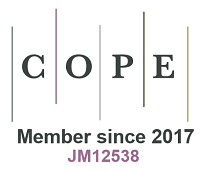Concept of an Intelligent Parking System; Efforts to Resolve Traffic Conflicts Regulations
DOI:
https://doi.org/10.28991/CEJ-SP2023-09-05Keywords:
Congestion, Indonesia, Intelligent Parking System, Parking, Reservation System.Abstract
Makassar, an Indonesian city, is situated on the south-western coast of Sulawesi Island. It is the largest commercial centre in eastern Indonesia, and traffic congestion is a problem there. Movement management must establish sufficient and well-organized parking areas, as well as a good and transparent system to eliminate unmonitored restitution funds, in order to address these issues. To address parking issues in Makassar, a legal and technical strategy is developed, with an emphasis on inclusiveness and including both legal and illegal parking spaces. The integrated parking concept is comprised of a mobile, everywhere-accessible parking area reservation system, a vehicle registration system based on licence plate numbers, and an effective data management system. 180 million Indonesian Rupiah are spent on all equipment and activity installations (IDR). At least 50 locations utilising this system will be required for a minimum vehicle range of 250,000 units, resulting in an approximate capital cost of 9 billion rupiah. The first clause describes the application of minimum parking fees to flat parking fees (generally 2 thousand rupiah). During a single parking period, it is anticipated that 250,000 vehicles will utilise this parking system if all parking spaces are occupied simultaneously. Government and investors can raise 250 million rupiah in investment capital assuming a 50:50 profit split. Revenue can reach billions of rupiah with just four iterations.
Doi: 10.28991/CEJ-SP2023-09-05
Full Text: PDF
References
[2] Anugrah, A., Soemarno, S., Wicaksono, A., & Basri, L. (2019). A Study on the Street Parking and Occupancy in Makassar City (Case Study). ARPN Journal of Engineering and Applied Sciences, 14(20), 7700–7708. doi:10.36478/JEASCI.2019.7700.7708.
[3] Surya, B., Hamsina, H., Ridwan, R., Baharuddin, B., Menne, F., Fitriyah, A. T., & Rasyidi, E. S. (2020). The complexity of space utilization and environmental pollution control in the main corridor of Makassar City, South Sulawesi, Indonesia. Sustainability (Switzerland), 12(21), 1–41. doi:10.3390/su12219244.
[4] Basri Said, L., & Syafey, I. (2021). The scenario of reducing congestion and resolving parking issues in Makassar City, Indonesia. Case Studies on Transport Policy, 9(4), 1849–1859. doi:10.1016/j.cstp.2021.10.004.
[5] Ayyub, Hardianti, Nonci, N., Nuraini, K., & Nur, M. (2021). E-Parking Management System. IOP Conference Series: Earth and Environmental Science, 717(1), 012031. doi:10.1088/1755-1315/717/1/012031.
[6] Hanafie, N. K., Rahman, R., Muin, F., & Mustaring, M. (2023). Responsibility for Public Road Parking Management for Vehicle Security and Safety in Makassar City. Indonesian Journal of Law and Policy Studies, 3(2), 130-138. doi:10.31000/ijlp.v3i2.6326
[7] Ramli Haba, M., Natsir, Z. U., & Megawaty, A. P. (2021). Policy Analysis Regarding Law and Regulations and Legal Sanctions on Four Wheel Parking in Makassar City. Nveo-Natural Volatiles & Essential Oils Journal, 8(4), 16029-16035.
[8] Ersina, S. (2020). Elements of Open Public Space at Corridor Sombaopu Street Makassar City. Teknosains: Media Informasi Sains Dan Teknologi, 14(2). doi:10.24252/teknosains.v14i2.13545.
[9] Arafah, M., Ramli, M. I., Aly, S. H., & Selintung, M. (2013). The motorcycle emission characteristics in developing countries: logit and regression analysis of I/M data in Makassar City, Indonesia. Journal of the Eastern Asia Society for Transportation Studies, 10, 1218-1226.
[10] Halim, D., & H, H. (2020). Analysis of User Perceptions of Transport Service Performance in Makassar City. Jurnal Ilmiah Ilmu Administrasi Publik, 10(1), 275. doi:10.26858/jiap.v10i1.14557.
[11] Sulistyono, S. W., Suliswanto, M. S. W., Dewa, P. K., Santosa, S., & Astina, C. (2022). Revenue optimization strategy through digitizing retribution parking in Kota Batu. Journal of Revenue and Pricing Management, 21(4), 455–461. doi:10.1057/s41272-021-00333-y.
[12] Utomo, D. M., Anjarwi, A. W., & Kumalasari, K. P. (2020). Citizens' Perceptions towards Transportation Tax and Retribution in Malang City, Indonesia. Tataloka, 22(1), 130–136. doi:10.14710/tataloka.22.1.130-136.
[13] Istiqomah, N., & Mafruhah, I. (2017). Analysis of Parking and Market Service Levies Potential for the Improvement of Regional Autonomy in Surakarta. 5th Global Conference on Business and Social Sciences, 4-5 May, 2017, Kuala Lumpur, Malaysia.
[14] Sarjiyati, S., Yitawati, K., & Arifin, Z. (2018). Parking Retribution on the Side of the Road towards the Improvement of Locally-Generated Revenue of Ngawi Regency. Legal Standing: Jurnal Ilmu Hukum, 2(2), 104. doi:10.24269/ls.v2i2.1241.
[15] Ferreira, M. C., Costa, P. D., Abrantes, D., Hora, J., Felício, S., Coimbra, M., & Dias, T. G. (2022). Identifying the determinants and understanding their effect on the perception of safety, security, and comfort by pedestrians and cyclists: A systematic review. Transportation research part F: traffic psychology and behaviour, 91, 136-163. doi:10.1016/j.trf.2022.10.004.
[16] Agustin, H., & Betavia, A. E. (2019). User Resistance to Use E-Parking System in Indonesia from the Status Quo Bias Theory Perspective: Evidence from Padang City, West Sumatera Province. Proceedings of the International Conference on Banking, Accounting, Management, and Economics (ICOBAME 2018). doi:10.2991/icobame-18.2019.41.
[17] Watimena, M. A., & Puturuhu, D. (2022). Implementation of Parking Retribution and Illegal Parking Management and Their Effect on Original Local Goverment Revenue. Public Policy (Jurnal Aplikasi Kebijakan Publik & Bisnis), 3(2), 176–187. doi:10.51135/publicpolicy.v3.i2.p176-187.
[18] Suhr, J. K., & Jung, H. G. (2023). Survey of Target Parking Position Designation for Automatic Parking Systems. International Journal of Automotive Technology, 24(1), 287–303. doi:10.1007/s12239-023-0025-6.
[19] Shimi, A., Ebrahimi Dishabi, M. R., & Abdollahi Azgomi, M. (2022). An intelligent parking management system using RFID technology based on user preferences. Soft Computing, 26(24), 13869–13884. doi:10.1007/s00500-022-07411-2.
[20] Lian, B. (2022). Intelligent parking management system based on cloud platform. Third International Conference on Computer Science and Communication Technology (ICCSCT 2022), Beijing, China, 12506, 991-1000. doi:10.1117/12.2661986.
Downloads
Published
Issue
Section
License
- authors retain all copyrights - authors will not be forced to sign any copyright transfer agreements
- permission of re-useThis work (including HTML and PDF Files) is licensed under a Creative Commons Attribution 4.0 International License.







